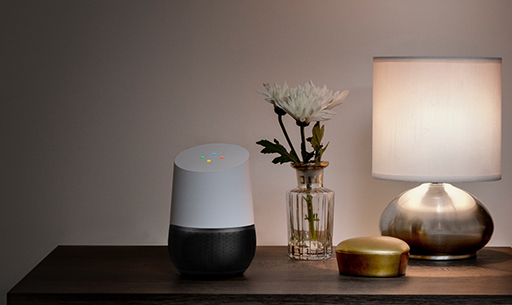Government moves to ban weak default passwords on IoT devices
DCMS proposes a trio of security requirements that shore up millions of smart home gadgets


The government has revealed plans to ensure that all consumer smart devices in the UK adhere to a trio of rigorous security requirements.
Drawn up by the Department for Digital, Culture, Media and Sport (DCMS), the plans require that all “consumer internet-connected devices” have a unique password that cannot be reset to any universal factory setting.
The plans also require the manufacturers of Internet of Things (IoT) devices to provide a point of contact to which anyone can report a security vulnerability they discover, and to ensure that security problems are “acted on in a timely manner”.
The third security requirement would require IoT device manufacturers to explicitly state a minimum length of time from the point of sale, be it online or offline, that a device will receive security updates from the vendor.
RELATED RESOURCE

The plans appear motivated by research that suggests there will be 75 billion internet-connected devices across the world by 2025, which present a large attack surface for cyber criminals to target if the security of devices such as smart televisions, cameras, and smart home assistants, isn’t up to scratch.
Digital Minister Matt Warman noted that the plans are aimed at keeping the UK safe but also not stand in the way of technology innovation.
“We want to make the UK the safest place to be online with pro-innovation regulation that breeds confidence in modern technology,” said Warman. “Our new law will hold firms manufacturing and selling internet-connected devices to account and stop hackers threatening people’s privacy and safety.
Get the ITPro daily newsletter
Sign up today and you will receive a free copy of our Future Focus 2025 report - the leading guidance on AI, cybersecurity and other IT challenges as per 700+ senior executives
“It will mean robust security standards are built in from the design stage and not bolted on as an afterthought.”
The government had been keen to champion security in smart home and other IoT devices, having launched its Secure by Design code of practice for consumer IoT security in 2018. While this served as a means to advocate for stronger cyber security practices for internet-connected devices, it was a voluntary scheme.
The plans would appear to take the code of practice further, with legislation to be the means of ensuring that IoT device makers don’t bypass best-practice security standards.
Roland is a passionate newshound whose journalism training initially involved a broadcast specialism, but he’s since found his home in breaking news stories online and in print.
He held a freelance news editor position at ITPro for a number of years after his lengthy stint writing news, analysis, features, and columns for The Inquirer, V3, and Computing. He was also the news editor at Silicon UK before joining Tom’s Guide in April 2020 where he started as the UK Editor and now assumes the role of Managing Editor of News.
Roland’s career has seen him develop expertise in both consumer and business technology, and during his freelance days, he dabbled in the world of automotive and gaming journalism, too.
-
 Should AI PCs be part of your next hardware refresh?
Should AI PCs be part of your next hardware refresh?AI PCs are fast becoming a business staple and a surefire way to future-proof your business
By Bobby Hellard
-
 Westcon-Comstor and Vectra AI launch brace of new channel initiatives
Westcon-Comstor and Vectra AI launch brace of new channel initiativesNews Westcon-Comstor and Vectra AI have announced the launch of two new channel growth initiatives focused on the managed security service provider (MSSP) space and AWS Marketplace.
By Daniel Todd